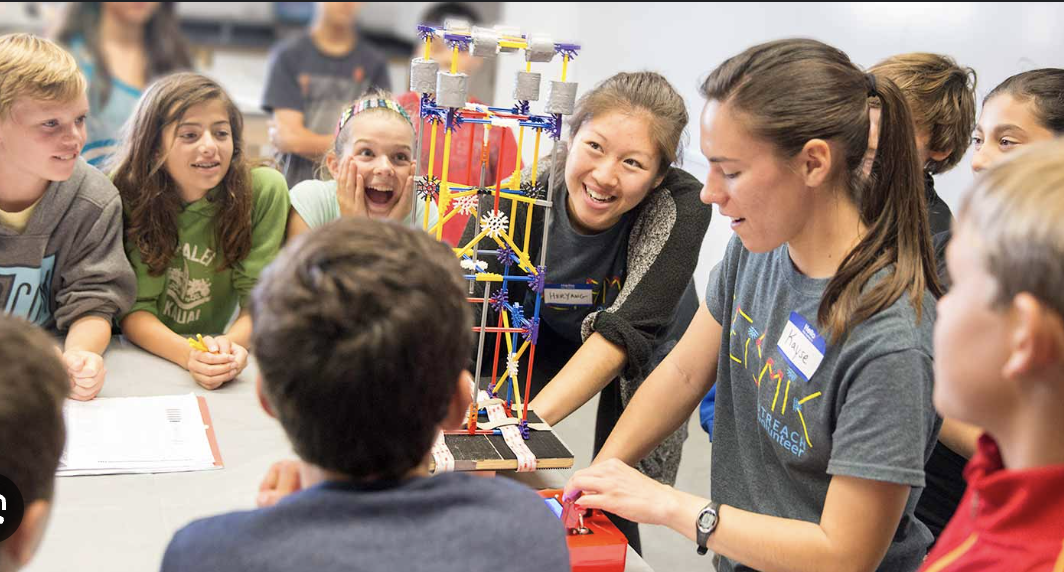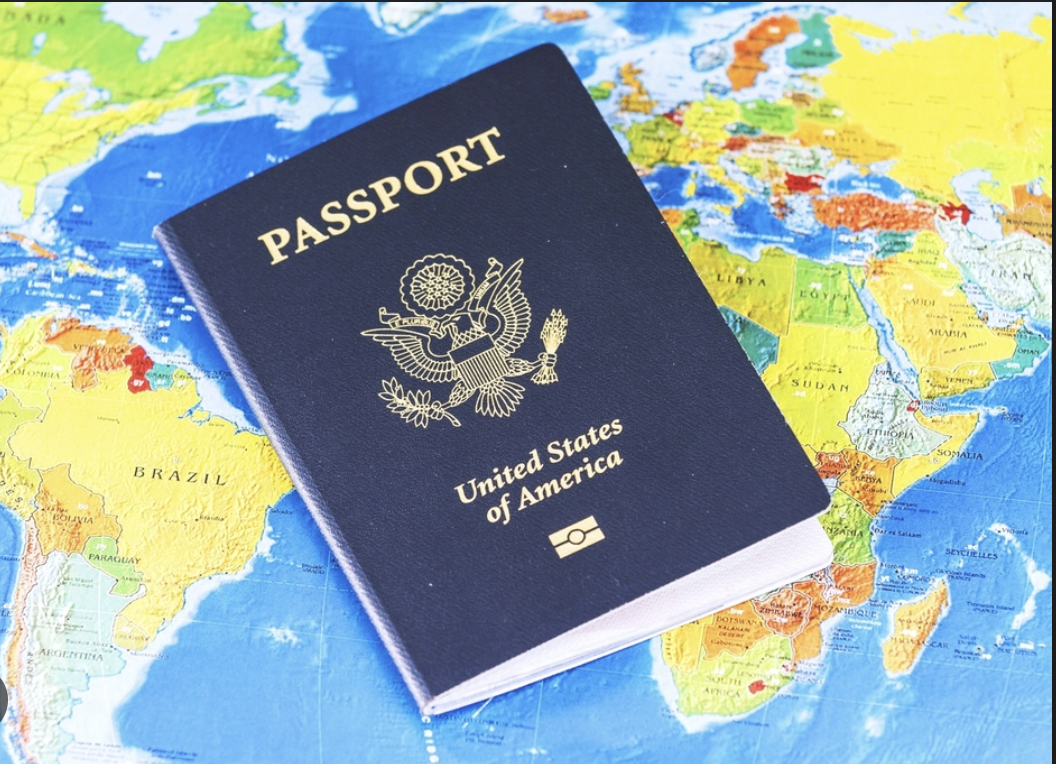Check out this comprehensive checklist of what you should bring to college, including documents, electronic devices, stationery, clothing, and household items.
Funding, accommodation, electives – preparing for university life can be overwhelming. Not to mention the dilemma of what to bring with you! Unless you have a truck, you probably won’t be able to take all your stuff with you.
But hey, the point of going to university is to start a new chapter. There are some things that you should definitely pack, though.
As a newly arrived student, you need to have important documents, electronic devices, clothes and basic stationery on hand.
Read more: What is an MBA and what is it for?
If you’re going to live in a student flat, the list gets longer, as you’ll probably need, among other things, kitchen utensils and bedding.
Luckily, we’re here to help. We’ve put together THE ultimate college packing list, with plenty of must-haves, plenty of do’s and don’ts, and some things you should avoid. Read on, pack your bags, and start your new adventure!
University life: an eternal dilemma between functionality and fun
When you start packing for the next chapter of your life, you’re bound to end up with a long list (and a headache).
To keep things simple, each section of this college packing list is divided into three categories: must-haves, recommended, and unnecessary. This way, you’ll know what to pack first and what to add last, if you still have room.
Documents: Identification is the most important thing
Documentation is at the top of the list. Most everyday items can be purchased once you arrive at your destination, but the local supermarket probably won’t sell things like passports, academic certificates, etc.
Tip: Keep your bank cards and driving license in your wallet and keep everything else in a folder in your room.
Must-haves (7 items):
- Passport
- DNI and driver’s license (if you already have it)
- University documents: acceptance letter, list of textbooks, housing contract, campus map…
- Documentation related to your scholarship , grant or student loan
- Your bank account details and any recent correspondence from your bank
Read more: 8 Tips for Landing a Paid Internship Abroad
- A copy of any medical prescriptions you need
- Student visa (if applicable)
Electronics: Don’t go overboard with bytes
You might think that your laptop is essential. And you’re right! But don’t bring it to class, because studies show that it can be counterproductive.
When you take notes on a laptop or tablet, your brain doesn’t have enough time to process the information, so you’re likely to lose track.
Stick to the traditional stuff, i.e. a notebook and pen, leave the electronics for after class, and don’t forget to put your phone on silent!
Must-haves (5 items):
- Laptop and charger
- Mobile and charger
- Headphones (to concentrate while studying)
- Extension cord/power strip (you may not have enough outlets in your room)
- USB flash drive (in case you can’t access your files in the cloud once you’re on campus)
Recommended (5 articles):
- Wireless mouse, monitor and keyboard (your back will thank you)
- An external battery so that your mobile phone doesn’t die at the most inopportune moment
- Ethernet Cable
- AAA and AA batteries
Stationery: Don’t be one of “those people” who shows up to class without a pen
Knowing what to bring to class has two benefits: it prepares you for anything that might come up in the first few weeks, and it allows you to focus on what your teachers are saying.
Continue reading: Three Ways to Finance Your University Studies
Whether it’s an in-person or online lesson, having what you need on hand is essential to staying focused.
Note: This list includes basic materials. If you are studying mathematics, graphic design, etc., the list will be more extensive.
Must-haves (4 items):
- Notebooks (A4, A5)
- Agenda (so you don’t forget any dates)
- Pens, pencils and highlighters (preferably in various colors)
- File cabinets to store your work and keep it organized
Recommended (5 articles):
- Sticky notes
- Stapler and hole punch
- Eraser
- Ruler
- Plastic covers (to protect your papers)
Household items: bedroom, bathroom and kitchen
Moderation is key in this area. Of course, it would be nice to have your own complete set of cooking utensils, but this would be a significant outlay.
Also, items like pots and pans often mysteriously disappear – it’s best to buy them with other students once you arrive.
This minimises the expense and means your fellow students are more likely to look after them. If you still prefer to have your own utensils, be sure to mark them to indicate that they are yours.
Must-haves (14 items):
- Bedding: sheets, pillows and pillowcases, duvet with cover, mattress protector
- Backpack, travel bag
- Clothes line
- Hangers
- Bath towels, bathrobe and flip flops (if you use a shared shower)
- Toothbrush, toothpaste, shower gel, soap, shampoo
- Earplugs, nail clippers, razors, brush/comb
- Hair dryer/straighteners
- First aid kit with: band-aids, painkillers, bandages, safety pins, tweezers, alcohol-free cleaning wipes, antiseptic cream, insect bite spray, thermometer, antihistamine cream
- Toilet paper (especially if you use a communal bathroom)
- Medicines and personal hygiene products
- Contact lenses and liquid, makeup remover
- Water bottle
Recommended (14 articles)
- Speakers
- A plant or two (studies recommend 10 plants, but your room may not have room for that many)
- A small fan for the summer
- Flashlight
- Padlock
- Lighter
Read also; Alternatives to university: what options do you have if you decide not to study a degree?
- Thumbtacks or adhesive putty
- Desk lamp
- Transparent/aluminum foil, ziplock bags
- Tupperware
- Knife, fork and spoon
- Scissors
- Thermos
Clothes: for school, partying, and everything else
When it comes to dressing, everyone has their own preferences , so in this section we simply offer general recommendations.
When thinking about what to wear to college, make sure you pack clothes for all seasons and that you feel comfortable in.
Must-haves (7 items):
- Socks and underwear
- Casual clothing (T-shirts, sweatshirts, sweatpants, jeans, etc.)
- Winter coat, gloves and hats
- An elegant set for formal occasions
- Sportswear and swimwear
- Sneakers, boots and shoes
- Pajamas
Recommended (4 articles):
- House slippers
- Costumes
- Waterproof
- Clock
What you should avoid taking to college
There are always two sides to every coin, so we can’t end this guide without listing a few things you should do without.
Of course, there are always exceptions, so use common sense (although who knows? You might actually need to lug a microwave to college…).Unnecessary (7 items):
- A printer: One of the benefits of going to college is that there are libraries, computer centers, and copy shops everywhere, so you don’t need to have your own printer.
- Your car: First, you would have to rent a parking space or find a spot on the street every time you come back from class. Second, gas. Lastly, you would end up being a taxi driver for your classmates. While studying at university, public transport is your friend!
- Lots of coats and/or shoes: Coats are bulky and take up a lot of space in your luggage, so think carefully about whether you really need a different one for each day of the week. The same goes for shoes. That pair that looks so cute but hurts after a few minutes? Best to leave it in the closet.
- Small appliances: Are you really planning to bring a kettle, toaster or microwave? Forget it. If you’re living in a student residence, these appliances will already be available in the kitchen or common areas. Are you renting a room in a student flat? Chances are your landlord will provide them.
- High school notes: focus on learning new things and leave the past behind.
- Anything bulky
- Books: head to the library! Plus, there are sure to be plenty of book fairs where you can pick up new reads.




